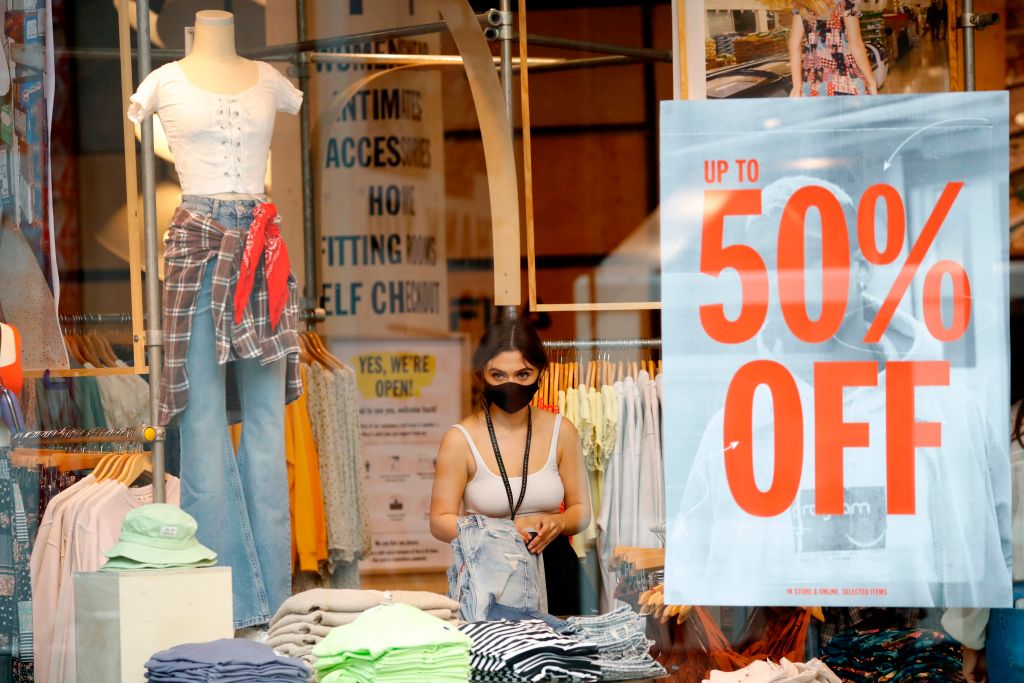
By: AswathyP
BRITISH shoppers bought much more than expected in May as the country gradually relaxed its coronavirus lockdown and online retailers boomed, adding to signs that the economy is moving away from its historic crash in March and April.
But official data also showed public borrowing hit a record high as the government opened the spending taps and public debt passed 100 per cent of economic output.
Sales volumes in May jumped by a record 12 per cent after an unprecedented 18 per cent slump in April.
The rise was at the top end of economists’ forecasts in a Reuters poll but still left sales 13.1 per cent down on a year ago.
Most shops in England remained closed until June 15, suggesting a further increase is likely this month.
Consumer confidence in June was the strongest since the lockdown began but remained weak, a separate survey showed.
Bank of England Governor Andrew Bailey said on Thursday the economy appeared to be shrinking a bit less severely in the first half of 2020 than the BoE had feared. But there was no guarantee of a strong rebound and unemployment would rise.
“May’s recovery in retail sales should not be interpreted as a sign that the economy is embarking on a healthy V-shaped recovery from Covid-19,” Samuel Tombs, an economist at Pantheon Macroeconomics, said.
Household incomes would take a hit when a government support scheme covering 9 million jobs is wound up in October, he said.
Britain closed non-essential retailers in late March and only a small number such as garden centres reopened in May.
Sales at non-food stores increased by 24 per cent in May, but were still 42 per cent down on a year earlier, with clothes stores the hardest-hit category, down by more than 60 per cent. Fuel sales jumped by 49 per cent as people in England got back in their cars.
Online sales rose to a third of all spending, a new record.
BORROWING SURGES
The ONS data also laid bare the scale of the hit to Britain’s public finances.
The UK’s total level of debt hit £1.95 trillion, or 100.9 per cent of the GDP.
Public sector net borrowing hit £55.2 billion pounds in May — nine times the level for May 2019 and a record high after April’s reading was revised down sharply.
“Today’s figures confirm that coronavirus is having a severe impact on our public finances. The best way to restore our public finances to a more sustainable footing is to safely reopen our economy so people can return to work,” said Chancellor Rishi Sunak.
“We’ve set out our plan to do this in a gradual and safe fashion, including reopening high streets across the country this week, as we kickstart our economic recovery.”
The Institute for Fiscal Studies and Citi said Britain would still be borrowing heavily in five years’ time.
Government borrowing is effectively being underwritten by the BoE which topped its bond-buying programme by £100 billion pounds on Thursday.
A measure of public sector debt increased to 1.95 trillion pounds, topping 100 per cent of economic output for the first time since 1963, when Britain was still paying off Second World War debts.
That measure reflected the record 20% contraction of the economy in April as well as the borrowing surge.
In April and May, borrowing of £103.7 billion was a towering £87 billion pounds higher than a year earlier but below the £122 billion government forecasters had predicted.
“Encouragingly, the government isn’t struggling to finance this extra borrowing, while the cost of servicing this debt is still on course to fall,” said Charlie McCurdy, a researcher at the Resolution Foundation think tank.
